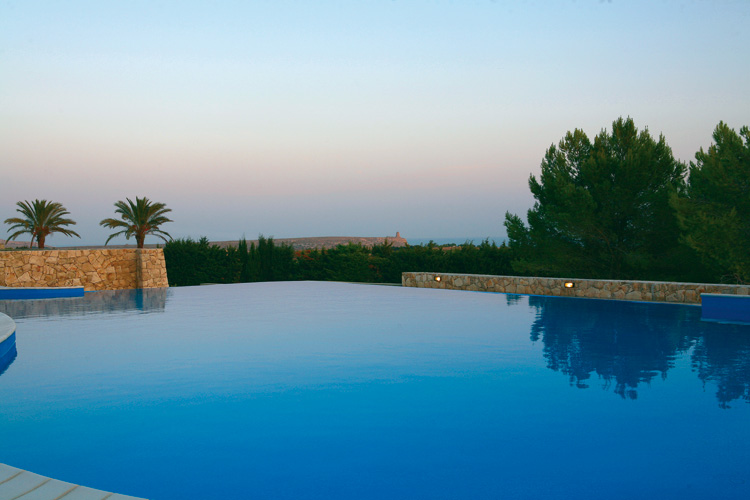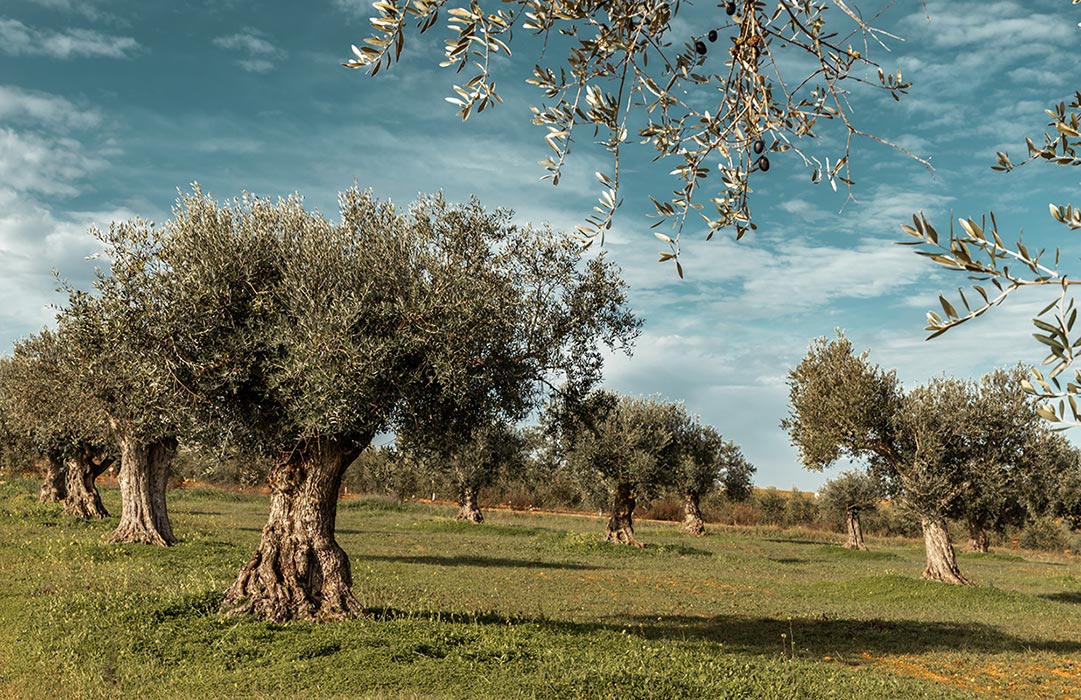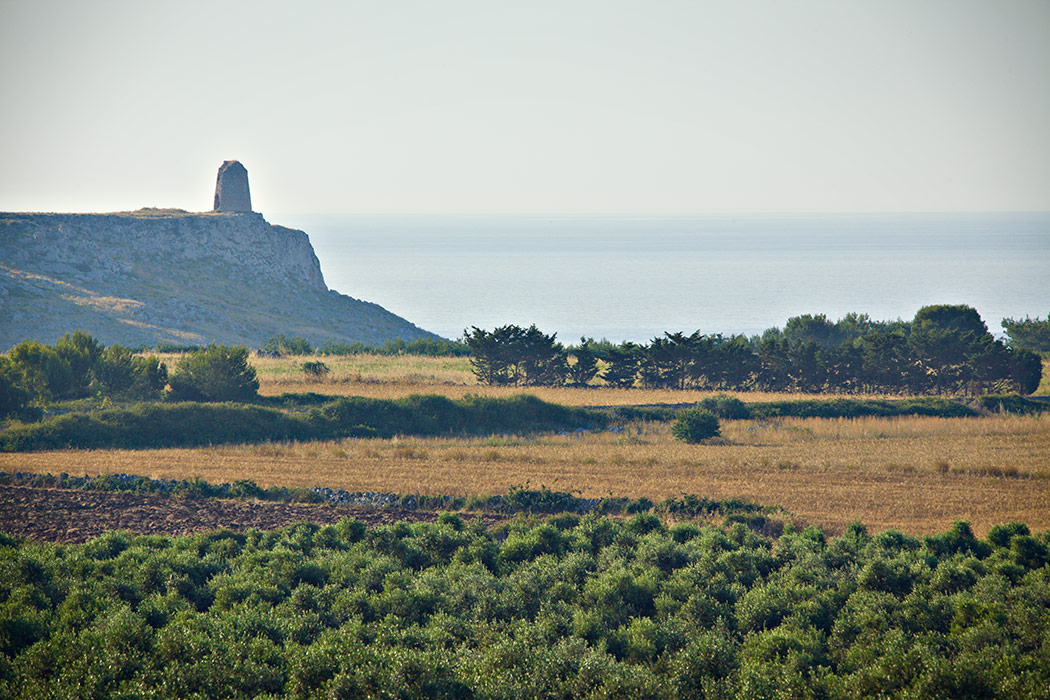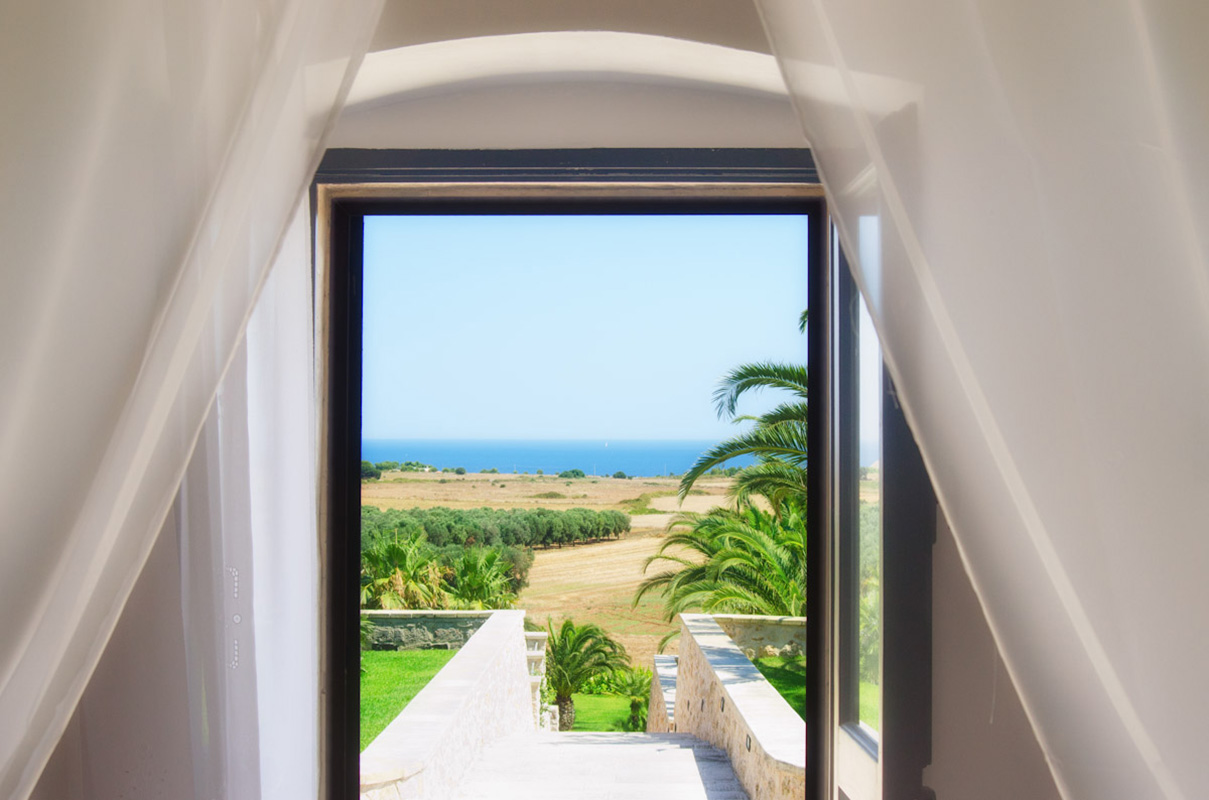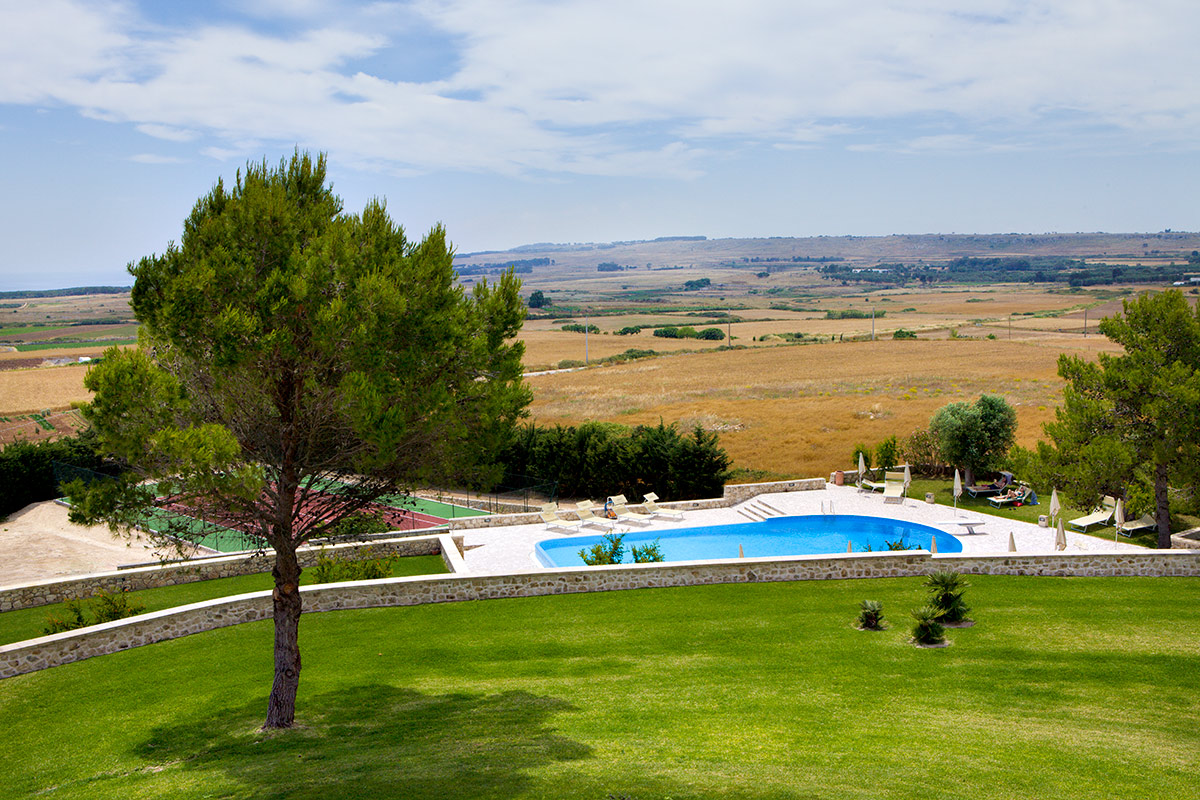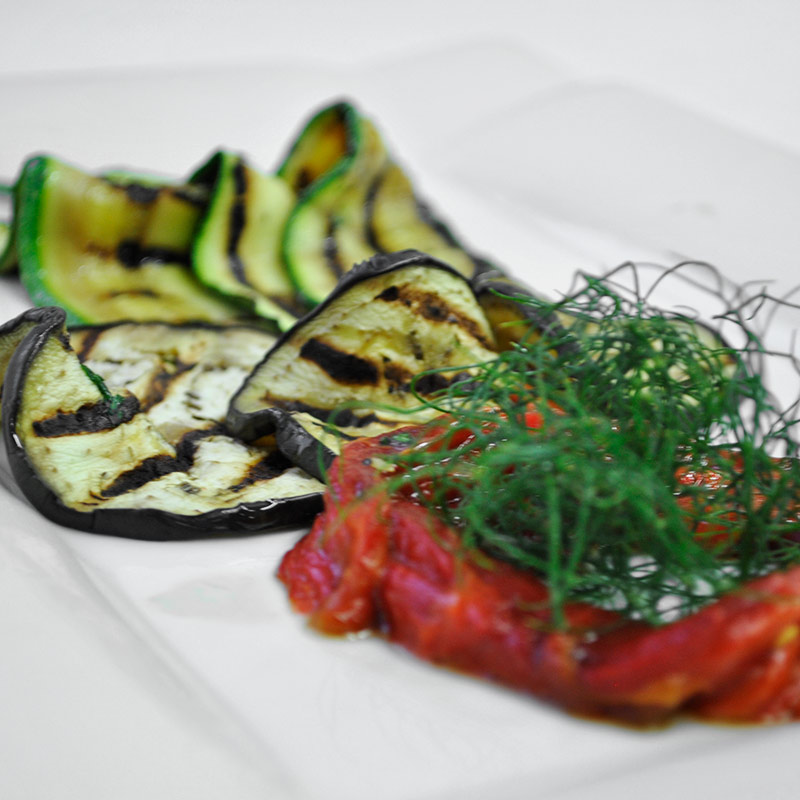Boutique farmhouse in Puglia
Boutique farmhouse in Puglia: essential elegance, authentic roots
In a travel market saturated with promises and clichés, the idea of a boutique farmhouse in Puglia can be easily misunderstood.
This is not about decoration or aesthetic trends — it’s about the quality of experience.
A masseria with true charm isn’t just a place to stay; it’s a form of hospitality rooted in tradition, built with care, and deeply connected to the land.
It’s a precise idea of silent luxury: made of real spaces, restored time, and gestures that matter.
Beyond the label: what “boutique charm” really means
There’s no strict definition, but certain elements tend to appear:
- Historic architecture using local materials (Lecce stone, tuff, lime);
- Balanced design that blends heritage with modern minimalism;
- Intimate, personal spaces that never feel standardized;
- Strong harmony with the surrounding landscape and agricultural identity.
In this context, charm isn’t about opulence — it’s authenticity raised to aesthetic dignity.
It’s a refusal to copy global trends, in favor of asserting a local, quiet, refined beauty.
Why Puglia is the natural home for this philosophy
Puglia — especially Salento — lends itself instinctively to this kind of experience.
The landscape is sculpted by millennia-old olive trees, dry stone walls, sun-drenched fields, sharp light, and wind that clears both air and thought.
In such a setting, the boutique farmhouse in Puglia is not an intrusion, but an organic part of the environment.
It doesn’t impose itself — it breathes with the land.
This is a region that offers itself without pretense.
And the charm of its masserie interprets this honesty through refined restraint.
It doesn’t promise escape from the world, but a better way of being within it: slower, more mindful, more real.
Who chooses a boutique farmhouse — and why
The guests drawn to this kind of property are rarely casual.
They are mindful travelers, often from Italy or Northern Europe, with a high cultural sensibility and non-negotiable expectations:
- silence,
- authenticity,
- sense of place,
- food rooted in the land,
- total absence of the banal.
They don’t seek entertainment — they seek cultural and sensory depth.
They love beauty, but don’t want to be surprised.
They want to be recognized — and for them, charm means exactly that: feeling part of something meaningful, without the need to explain it.
Architecture and interiors: where every detail has a story
The allure of many boutique farmhouse in Puglia lies in how they preserve memory and turn it into contemporary comfort.
- Rooms don’t offer giant screens, but views of the fields.
- Bathrooms are built in raw stone; floors are clay, concrete, or aged terracotta.
- Furniture combines handcrafted recovery with essential design — never overdone.
Nothing feels random, and yet nothing feels forced.
You don’t need to be told it’s high quality — you can feel it.
Landscape as part of the experience
A true boutique farmhouse is not separated from the world — it’s immersed in an ecosystem.
The pool reflects ancient olive trees.
Breakfast is served beneath grapevine pergolas.
Paths lead not to fences, but to wild coves or quiet kitchen gardens.
There are no visual or symbolic barriers between the guest and what surrounds them.
Nature enters the room, the plate, the sleep.
This is what distinguishes mere beauty from genuine charm: harmony with the land isn’t decoration — it’s essence.
The kitchen: roots, discipline, and truth
In a boutique farmhouse in Puglia, food isn’t a performance. It’s a form of cultural expression.
It’s not folkloric. It’s intentional.
- Menus follow the rhythm of seasons.
- Vegetables are grown onsite.
- Bread is kneaded by hand.
- Oil is produced from the masseria’s own olives.
- Fish is sourced from small coastal boats.
Dinner becomes more than a meal: it’s translation.
The territory is transformed into texture, flavor, and ritual.
Time: the rarest luxury of all
Perhaps the most important promise a boutique farmhouse in Puglia can make is this: the return of time.
Time to sleep deeply.
Time to walk without purpose.
Time to understand where you are.
In a world where every second is scheduled, choosing to stay in a place that invites you to stop — to truly stop — is a radical act.
And that’s why guests return.
Not just for the comfort, but because something clicked.
They felt aligned with a place, a rhythm, a silence.
Something hard to explain — and impossible to forget.
Why choose a boutique farmhouse now
In an age where tourism often becomes consumption, choosing a boutique farmhouse in Puglia is a counter-current gesture.
It’s a refusal of standardization.
It’s the pursuit of beauty you don’t buy — you recognize.
It’s the desire to belong to a place, not just pass through it.
If this resonates with you — if you’re seeking not just comfort, but a different sense of time, an essential balance between beauty, truth, and silence —
then discover Masseria Panareo.
A boutique farmhouse in the heart of Salento, where every detail tells a story.
Discover more → masseriapanareo.com
Puglia Travel you don’t watch this land
Puglia Travel: you don’t watch this land — you live it
Puglia travel begins with a truth: this land doesn’t tolerate hurry. Everything here — a landscape, a dish, a craft — asks for time to be truly understood.
It’s not enough to drive across Salento or skim a few guidebook pages. This place reveals itself to those who slow down, listen, observe with respect.
And in that slow, deep relationship, travel stops being movement — and becomes real experience.
But for experience to happen, it needs something rare: the right context. Not just a place that welcomes, but a place that makes things happen.
Not a hotel, not a resort — but an authentic masseria, where beauty isn’t displayed. It’s lived.
Experience is not a checklist — it’s a direction
When we talk about Salento experiences today, we often risk superficiality. Doing is confused with living, seeing with understanding.
Real Puglia travel is about feeling part of something — not being entertained. It means eating bread you saw being kneaded.
Walking roads you won’t find on Google Maps. Touching, listening, learning — not “trying something new,” but reconnecting with something essential.
Dinner among olive trees, where every light is real
Picture a table for two, set beneath ancient olive trees. No background music — only wind through the branches, cicadas, the sound of wine pouring into a glass. A dinner prepared by a discreet chef, who tells a quiet culinary story with local ingredients.
Low lanterns, open sky, silence. In moments like these, simplicity becomes luxury.
And time slows down without asking permission.
Body, breath, space: wellness without aesthetics
Between a dry-stone wall and an olive tree, a mat and the sky. A private outdoor yoga session may seem like a detail — but it’s a powerful gesture.
Not exercise, but re-centering. Breathing deeply in the countryside, with no noise or clocks, is a way to tune the body to the land.
In an age where even relaxation is scheduled, taking time to listen inward becomes an act of quiet rebellion.
Sunset from the sea: the horizon reveals itself from afar
Some places are best understood from the outside. Sailing along the Salento coast on a private boat is an experience made of light and slow rhythm. Grottos, coves, shifting colors.
A swim in clear waters, far from everything, followed by a simple aperitif: cool wine, rustic flavors, bread. No forced luxury, no choreography — just the chance to feel time drift like the sea beneath the bow.
Where there’s a bottle, there’s a story
Salento is land of oil and wine — but most of all, of people who make them. Visiting a small oil mill or winery means entering a familiar space, where processes are shared, not hidden. Tasting isn’t just sampling — it’s knowing the harvest rhythm, the scent of vats, the silence of cellars. You taste three wines or oils — but mostly, you enter a story with deep roots. And it changes how you drink, savor, remember.
To truly understand, use your hands
In a craft workshop, you don’t watch — you do. Ceramics, weaving, olive wood — not as souvenirs, but as gestures.
Next to an artisan, you learn not just techniques but rhythms. The slowness of hands, the value of repetition, the courage of imperfection. What you bring home isn’t precious because it’s perfect — but because it’s yours.
Handpicked olives: the land becomes gesture
From October to December, Salento’s countryside comes alive. It’s olive harvest season. Joining this ritual isn’t a gimmick — it’s a way to touch the earth’s cycle.
You harvest, listen to those who do it by heart, and taste new oil, still warm. You return home with a bottle — and a new measure of the seasons.
Two wheels, endless freedom
Sometimes, freedom is the best experience. A scooter, a hand-drawn map, and light to follow: coastlines, villages, country roads. You stop where a balcony charms you or a bakery pulls you in.
And you find that distance matters less than the beauty of your stops.
Puglia travel is about leaving with more than memories
True experiences in Salento don’t end when you leave. They stay in your gestures: how you pour oil, set a table, seek silence. Puglia travel, lived this way, doesn’t leave memories — it leaves marks.
Those who come here don’t want noise, but quiet, lasting traces. Some places don’t promise experience — they let it happen.
And in Salento, if you know where to look, they happen every day.
Salento holidays slow paths, honest flavors, and imperfect beauty
Salento holidays: slow paths, honest flavors, and imperfect beauty
There are places you don’t just visit—you walk through them, breathe them in, and let them seep into you. Salento is one of those places. But not the one you see on postcards, crowded in August, polished for tourists. There is another Salento—quieter, more rugged, more real. And that’s where the deepest journeys begin. Living your Salento holidays differently is possible. It only takes a shift in pace. A willingness to slow down. To choose paths over roads, people over plans, truth over polished beauty.
The Salento you don’t expect
Far from crowded beaches and flashy nightlife, there’s a Salento made of silent alleys, sun-washed courtyards, and elders seated on their doorsteps. The walls are weathered, shutters faded, and the air smells of sea and soil.
This Salento doesn’t shout to be seen—it whispers. You find it in the backstreets of Specchia, the ancient stones of Giuliano, the scent of fermenting grapes, the hum of a distant radio, the slow pace of those who know that rushing is a way to lose meaning.
Walking slowly, looking closely
One of the most genuine ways to experience Salento holidays is to walk—not to get somewhere, but to be somewhere. The tratturi—narrow rural paths framed by dry stone walls—cut through olive groves, gardens, and abandoned pajare. No tourist signs. Just the guidance of light, scent, and instinct.
Walking between Otranto and Santa Cesarea, or over the inland ridges, means feeling the earth beneath your feet. You’ll pass old wells, greet farmers, pick wild figs. It’s a secular pilgrimage through unspectacular, humble beauty.
Real encounters, not staged experiences
Authentic Salento is revealed through unplanned moments. A fisherman offering you a sea urchin he just opened. A woman sharing the story of a fig tree planted by her father. A baker showing how her hands remember the way her mother made bread.
You don’t need curated “experiences.” You need time and attention. When you give that, the land gives back. Hospitality here is not an industry—it’s a language, a transmission of memory.
The taste of simplicity
In Salento holidays, you taste a culture that’s ancient and proud. Meals aren’t designed for photos—they’re acts of love. Pasta is handmade. Wine is poured into mismatched glasses. Tomatoes are sun-dried and slow.
A bowl of broad beans and wild chicory. Warm puccia bread with olive oil. The sharp, earthy tang of sun-dried tomatoes. These flavors don’t try to impress—they just tell the truth of the land.
Seaside paths, not beach clubs
Even the sea in this Salento is different. It’s reached on foot, over rocks and bramble, not via a queue of sun umbrellas. There are hidden coves where the water is crystalline and shockingly cold, where cliffs fall into deep blue and silence is king.
Places like Porto Badisco or Marina Serra are guarded by locals, quiet and elemental. You undress not just your body, but also your distractions, your noise, your rush.
Dark nights, quiet skies full of stars
Inland, away from city lights, the nights in Salento are ink-black and full of stars. The sky becomes a vault, vast and close, and you lie beneath it, watching. You don’t need telescopes—just your breath and a little wonder.
You’ll sleep in simple rooms, cool with stone. Silence wraps you. Sleep comes like it did when you were a child: safe, deep, and slow.
The imperfect charm of what’s real
No one here pretends it’s perfect. You’ll find cracks, weeds, peeling paint. But this is where the magic lies. In the unpolished truth. In the step cracked by time. In the fruit picked from the roadside. In the quiet roads where nothing happens, and that is everything.
There’s a moment, sitting on a stone step, watching the sky turn, when you realize: this is enough.
Salento holidays far from clichés
Those who choose this kind of Salento holidays aren’t looking for curated experiences—they’re looking for roots. They want to feel something, not just consume it. They collect stories, not souvenirs.
This is a Salento that doesn’t sell itself—it waits. For those who know how to listen. Who are willing to be changed by it.
Slow down, and feel everything again
In the end, this isn’t a vacation—it’s a return. A return to what matters. A return to the quiet voice inside. To the taste of real food, the feel of sun on stone, the sound of a place that has nothing to prove and everything to share.
Salento holidays, if lived slowly and fully, are an invitation:
to be present, to feel deeply, and to remember what it means to belong.
Special Places to Stay
Special places to stay: a masseria by the sea in Salento
There are no clear boundaries in Salento. The red earth pushes almost to the shore, olive trees stretch toward the salt, and the wind passes through everything: stone, fields, and waves.
Here, the landscape is a single body that breathes slowly, between dry-stone walls and the distant horizon.
To choose a masseria by the sea is not just a geographic choice. It means inhabiting the South. It means recognizing, in one place, the possibility of silence, of understated beauty, of a life that still follows the sun.
This is where some of Puglia’s most special places to stay are hidden: homes born of the land, shaped by time, now open to those who seek peace without filters.
Rural hospitality by the sea
Most masserie in Salento were built inland, to protect harvests and animals from coastal raids. But some, more exposed and more daring, were constructed close to the sea.
White, essential, solid — with their backs to the countryside and their eyes fixed on the water.
Once isolated, today they have become places of authentic hospitality, able to hold together rural memory and the elegance of simplicity.
In a masseria by the sea, the distance between farm work and horizon shortens.
You live among tomato vines and prickly pears, but dine to the sound of waves.
You wake to the scent of warm bread, and a short walk takes you to a hidden cove.
The privilege of simplicity
There are no grand gestures here. Only thoughtful choices: limewashed walls, rough wood furniture, linen sheets dried in the sun, windows open to the Mediterranean scrub.
Rooms don’t seek to impress — they seek to soothe.
A holiday in a masseria by the sea is never rushed. There’s no schedule.
You’re inhabited by the day. Breakfast is served outdoors, books finally get read, and the sounds of the countryside mix with those of the sea: crickets, cicadas, wind, gulls, leaves.
A land that reaches the water
The sea in Salento is not just a backdrop. It’s a living presence. It doesn’t intrude — it accompanies.
To walk a path from the masseria to the sea is to cross a changing landscape: brambles, rosemary, wild thyme, ancient olive trees, stones shaped by time.
At certain times of day — especially at dawn and dusk — it feels like everything pauses. The land holds its breath.
And in that dense silence, everything finds its rightful place.
The land on the plate
The real menu isn’t written by a chef. It’s written by the vegetable garden.
By the bees. By the season.
At breakfast, fig jam, almond cake, fresh ricotta.
At lunch, pasta with breadcrumbs, roasted tomatoes, wild chicory.
At dinner, the fire is lit: local meats, grilled vegetables, hand-picked herbs, wine that has never left the countryside.
The cuisine of the masseria is peasant cuisine: essential, bold, deeply flavorful.
There’s nothing adapted for tourists. No compromise with international taste.
Those seeking a “genuine food experience” will find it here — even if it’s not what they expected.
Because flavor here isn’t sweet. It’s full. It’s textured, like the stone.
Homes of stone, lives still present
Those who choose a masseria by the sea in Salento often do so to disconnect, to find a space unlike any other.
But staying here, they soon realize that this is not just a setting. It’s a living structure, inhabited by real people, shaped by memory and continuity.
Many of these masserie are still run by the families who watched them change: from agricultural outposts to historic dwellings.
Often, the one cooking is the one who knows the land. The one who welcomes you has harvested olives in those fields.
And the one who pours the wine looks you in the eye, like a host — not a vendor.
A horizon that watches you
To sleep in a room that opens onto the sea, in a house of ancient stone, with the sound of crickets and the wind in the olive branches — that’s not something you sell.
It’s something you live.
Evening arrives slowly.
The day fades behind dry-stone walls, painting the outline of the olive trees pink and orange.
Then, real darkness — with no light pollution — reveals the sky as it is: wide open, with the Milky Way stretched above.
You fall asleep in complete silence, to the distant song of the night.
You wake to warm sunlight filtering through a wooden shutter.
You are rocked by a harmony that needs no technology to function.
Where the land ends, time begins
A masseria by the sea isn’t a compromise between farm and beach.
It’s the place where they meet. It’s a crossing point. A threshold.
Among Salento’s most special places to stay, few offer this rare balance between sea breeze and ancient stone, between wild landscape and quiet hospitality.
You leave with the taste of bread, the scent of salt and herbs, the sound of cicadas — but above all, with a new sense of time: the kind that walks, that welcomes, that holds.
Rediscovering yourself on a farmhouse holiday
Rediscovering yourself on a farmhouse holiday: silence, olive trees, and open skies
There are places you don’t simply visit—they inhabit you. You breathe them in. You let them pass through you. The Apulian masserie are such places. Ancient rural estates nestled in the countryside, embraced by centuries-old olive trees and kissed by skies that seem to go on forever. These are not just places to stay—they offer immersive experiences in beauty, in history, and in the quiet truth of simple things.
In a world used to rushing, choosing a farmhouse holiday is an act of resistance. It is choosing slowness, silence, and the essential. It is finding yourself again.
Among stones, memory
Masserie tell ancient stories. Originating in the Middle Ages, they were built to protect harvests and families from an uncertain world—agricultural fortresses with watchtowers, inner courtyards, rainwater cisterns, and underground olive presses. Life inside moved with the rhythm of the fields and the transformation of the land’s bounty.
And yet, walking today among those dry stone walls, you feel something beyond architecture: an echo of distant voices, of calloused hands kneading dough, of children running across the courtyard, of women hanging out linen in the wind. The whitewashed walls, the living lime, the porous stone are still there—telling their stories.
Hospitality that comes from the heart
The magic of the masseria lies in its hospitality—never showy, always sincere. Here, hospitality isn’t a performance, but something real: a coffee made just for you, a slice of still-warm bread, the story of a recipe passed from grandmother to granddaughter. It’s the warmth of people who live and work in these spaces—often the same families who’ve preserved and nurtured them for generations.
A farmhouse holiday welcomes those who want to leave the superfluous behind and rediscover their bond with the earth, seasonal produce, and the rhythm of nature. It’s not a five-star hotel. It’s an open sky above five awakened senses.
Olive trees as timekeepers
Walking among the olive trees of Puglia is like moving through a silent poem. Shaped by wind and time, these trees are alive with memory. Some are centuries old, witnesses to wars, harvests, births, famines, and springs. Each trunk tells a different story—marked by knots, hollows, and veins that resemble the fingers of wise elders pointing toward the sky.
Beneath their branches, you find shade, relief, and thought. You walk slowly, respectfully, across the red soil of Salento. You listen to the wind moving through the leaves like a long and steady breath. It is there, without a sound, that reconnection happens.
Flavors that speak of identity
A farmhouse holiday is inevitably a journey through taste. The kitchens of the masserie don’t serve tourist menus. They tell stories—of soil, of seasons, of family tradition. Every ingredient has a name, a history, a reason for being there. The legumes come from the garden just beyond the kitchen. The oil is freshly pressed. The bread is handmade, still using the old sourdough.
At breakfast, you savor homemade jams, figs picked at dawn, and the honey of the local beekeeper. At lunch and dinner, you rediscover dishes rooted in memory: fava beans with wild chicory, hand-rolled orecchiette, tiella of rice and potatoes, sun-preserved eggplants, caciocavallo aged in stone cellars. Food here is not just nourishment—it is testimony, pride, and culture.
Sleeping under endless skies
In the masseria, night falls gently. The day fades slowly, like the sun dipping behind the dry stone walls, painting the outlines of olive trees in shades of pink and amber. Then true darkness comes—free from light pollution, revealing the sky for what it is: a vaulted theatre, where the Milky Way reveals itself without shame.
Sleeping in a masseria means surrendering to pure stillness, with nothing but the distant sound of crickets. It means waking with the golden light of dawn streaming through old wooden shutters. It means being cradled by a harmony that needs no technology to exist.
A different kind of luxury
You don’t need spas, LEDs, or chrome to feel luxury. The true privilege is a table beneath a grapevine, a wooden chair overlooking the garden, time to watch ants work in the gravel. In the masseria, luxury means slowness, quality, and connection.
Many masserie have evolved without losing their soul: essential yet refined rooms, furnishings that blend modern design with ancient materials, pools that reflect the sky, and quiet spaces for well-being using local herbs and oils. What always matters most is the balance between beauty and truth.
Experiences that leave a mark
No two days in a masseria are the same. One morning you may help harvest grapes, another you might join a cheese-making session, or ride a bike through olive groves, or practice yoga in an open field. Perhaps you’ll forage wild herbs with someone who knows their secrets. You’ll learn, listen, and be surprised.
But above all, you’ll simply be. With no need to do. No need to justify. Allowing yourself the time to live.
An invitation to the essential
Choosing a farmhouse holiday is not a trend. It’s a deliberate choice. It’s a return to what is essential: the earth, time, silence, community, and the quiet beauty hidden in simple gestures.
It’s coming home—even if you’ve never been there before.
To Eat in a Masseria
To Eat in a Masseria: Where Food Is Memory, Land, and Return
There is a part of Puglia that doesn’t need noise to be understood. It speaks through a scent — of burning wood, of ripe tomatoes simmering, of freshly pressed olives. You step into it without even noticing. Into a kitchen that is land and history. Into a story you can taste.
To eat in a masseria in Salento is not an “experience.” It’s an ancient gesture that endures. A quiet form of truth passed down through hands, through seasons, through the silent language of the soil.
A kitchen born where the light begins
Masserie in Salento were, above all, working places. Harsh, enclosed, built for survival. For centuries, no one would have thought to “choose” them for a holiday. They were functional, necessary, unadorned.
Today, these same white-washed rural structures have become the heart of a different kind of hospitality. Not hotels. Not seaside restaurants. But living places shaped by memory, reawakened among olive trees, where food is still part of a cycle — planted, harvested, cooked, and passed down.
The cuisine here doesn’t aim to impress. It aims to remember.
The food that tells the story
If you’re looking for a typical restaurant in Salento, you may not find it in the city. You’ll find it instead in a courtyard of stone, beneath a pergola, at a rough wooden table with freshly baked bread and a bowl of beans picked from a nearby field.
To eat in a masseria in Italy, especially in the south, is to sit down to dishes that cannot be rushed. Tiella of rice, potatoes, and mussels cooked slowly in a wood-fired oven. Handmade orecchiette, shaped every day by women who can tell the consistency of dough by touch, not timer.
The olive oil is fresh, pungent, almost green — because it’s new, cold-pressed a few meters away. The wine is dark, strong, made to tell stories, not sell bottles.
A history of hospitality written in stone
Longing for the sea, for outdoor dinners, for slow walks among olive groves. Today, Puglia is a destination for those in search of something true. And the masserie — the rural houses once built to manage farmland — have become its soul.
These micro-villages, many born between the 16th and 18th centuries, were given to local land stewards (massari) by the Bourbons, who entrusted them with managing vast ecclesiastical lands. They were self-sufficient communities, with everything: lodgings, barns, ovens, wells, even small chapels.
Now they open — cautiously, respectfully — to a new kind of visitor: the one who wants to taste, not consume.
The land on the plate
There is no fixed menu here. The vegetable garden decides. The bees decide. The season decides.
Breakfast might be fig jam, almond cake, homemade ricotta. Lunch: pasta with toasted breadcrumbs, wild chicory, slow-roasted tomatoes. At night, a fire is lit: grilled meats, fresh vegetables, hand-gathered herbs, wine that never left the countryside.
This is peasant food — sharp, deep, real. It doesn’t chase global taste. It defends identity.
Many speak of “authentic food in Italy,” but few have sat here, in the quiet of a Salento evening, and understood that flavor has texture, and that texture has history.
Hospitality without theatre
There’s no stage here. No act. The people who welcome you have lived this life. They don’t “serve” a performance — they share their rhythm.
And above all, they share time. Enough time to let the bread rise, to let the legumes cook, to tell a story, to stay silent.
To eat in a masseria in Salento is to enter a space where food becomes a form of listening.
The South, understood through the senses
In an age of food photos and fast reviews, the masseria slows you down. It reminds you how fennel smells when it’s wild. How olive oil burns slightly at the back of the throat when it’s fresh. How silence tastes at sunset.
You come looking for traditional cuisine and leave with something else — the understanding that food, here, is not a service.
It’s inheritance.
A return, not a visit
To eat in a masseria is to go deeper. To stop being a tourist. To become — for one meal, for one evening — part of something older, and greater, than yourself.

